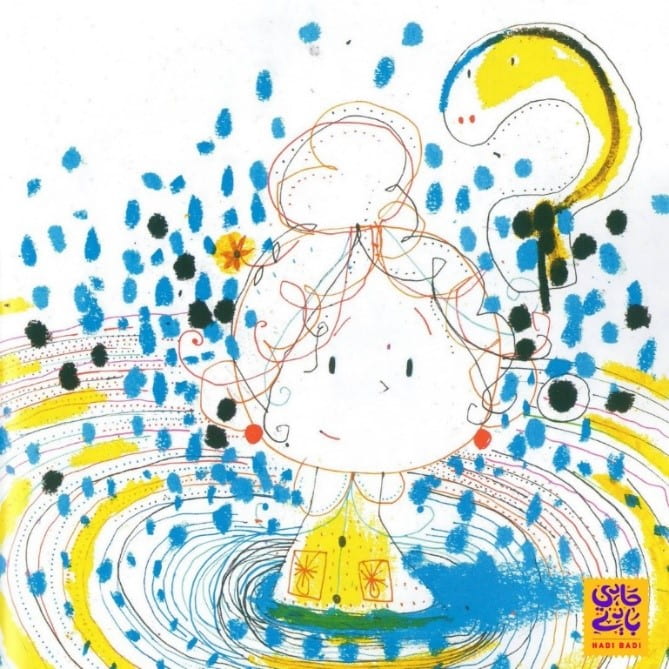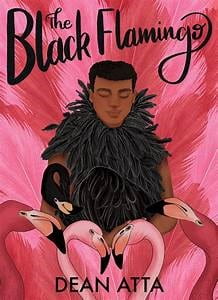Ella Asheri, as part of the team at the Goldsmiths’ Development and Alumni Office, brought together this inspiring online event to ask difficult questions and discuss future directions within children’s and Young Adult literature. This overarching question framed the debate: What does it mean to see yourself represented in a story? The event was positioned in this way to spark debate and provide a space to discuss diverse stories.
Goldsmiths has been home to some of the most exciting and radical voices of children’s literature. From founding initiatives to promote creative learning in Arabic, to writing stories about black gay teens reclaiming their identities through drag, Goldsmiths alumni are leading the way in challenging societal structures by creating diverse stories for children and young adults.
(Publicity for the event which was held on 31 March 2021)
The panellists, alumni Soheir Abaza, Dean Atta and Nadine Kaadan, shared their experiences as writers and illustrators advocating for change in children’s literature. As facilitator of the panel discussion, I was lucky enough to have known all the panellists as students at Goldsmiths. Their biographies illuminate the groundbreaking work of the three panellists in the field of children’s literature and education.
Soheir Abazais a writer and teacher. She is a PhD Candidate with an MA in Creative Writing and Education (Writer/Teacher) from Goldsmiths in 2014. Soheir has initiated and led a creative writing programme for Syrian refugee children in Cairo, and has worked with Alwan and Awtar, an NGO that offers artistic, cultural and non-formal learning activities to children and youth in various urban and rural community settings throughout Egypt. Soheir co-founded Hadi Badi, an initiative that aims to promote children’s and young adult literature and creative learning in Arabic worldwide. Her book in Arabic ‘I Feel Like…’ encourages children to use their imagination to describe their feelings.

Figure 1: I Feel Like …’ by Soheir Abaza
Nadine Kaadan is an award-winning children’s book author and illustrator from Syria now living in London. She is published in several countries and languages and her mission is to champion empowered and inclusive representation in children’s books so that every child can see themselves in a story. Nadine has worked with young refugees in mitigating post-conflict trauma. Her books ‘Tomorrow’ and ‘The Jasmine Sneeze’ touch on Syria’s long and proud cultural heritage as well as the life of refugees. She has been nominated for a Kate Greenaway Medal and is the 2019 winner of the Arab British Centre Award for Culture. Nadine was selected as one of the BBC 100 Women 2020’s ‘most influential and inspiring women’ and was featured on their BBC 100 Women masterclass. She studied a Masters in Art and Politics at Goldsmiths in 2014.

Figure 2: Tomorrow by Nadine Kadaan
Dean Atta is a poet and author. His debut poetry collection, ‘I Am Nobody’s Nigger’, was shortlisted for the Polari First Book Prize, and his debut novel, ‘The Black Flamingo’, won the Stonewall Book Award. He was named as one of the most influential LGBT people in the UK by the Independent on Sunday. Dean’s work often deals with themes of gender, identity, race and growing up – and has appeared on BBC One, BBC Radio 4, BBC World Service and Channel 4. Dean regularly performs across the UK, and internationally. He is a member of Malika’s Poetry Kitchen. Dean is based in Glasgow, and is Co-director of the Scottish BAME Writers Network and a patron of LGBT+ History Month. He studied a Writer/Teacher Masters at Goldsmiths in 2014.

Figure 3: The Black Flamingo by Dean Atta
The panellists shared their experiences as students at Goldsmiths and how the spirit of protest and radicalism had helped shape their creative work. All three panellists talked about their experiences of working with children/young adults and sharing their writing and books with children/young adults at different stages in the process. This part of the discussion also showed how sharing their diverse children’s stories can open up spaces to imagine and put into words difficult emotions and experiences and recognise the transformative potential of children’s stories for radical hope and social change. The debate moved onto questions of identity, social justice and why representation matters and what representation looks like in practice before talking about future directions and practical steps to bring about change in children’s/YA literature.
You can access the recorded Goldsmiths Connect event here:
You can find information about the MA Children’s Literature programme at Goldsmiths which has 3 pathways:
- MA Children’s Literature: Issues and Debates
- MA Children’s Literature: Creative Writing Pathway
- MA Children’s Literature: Children’s Book Illustration.
Blog by Vicky Macleroy